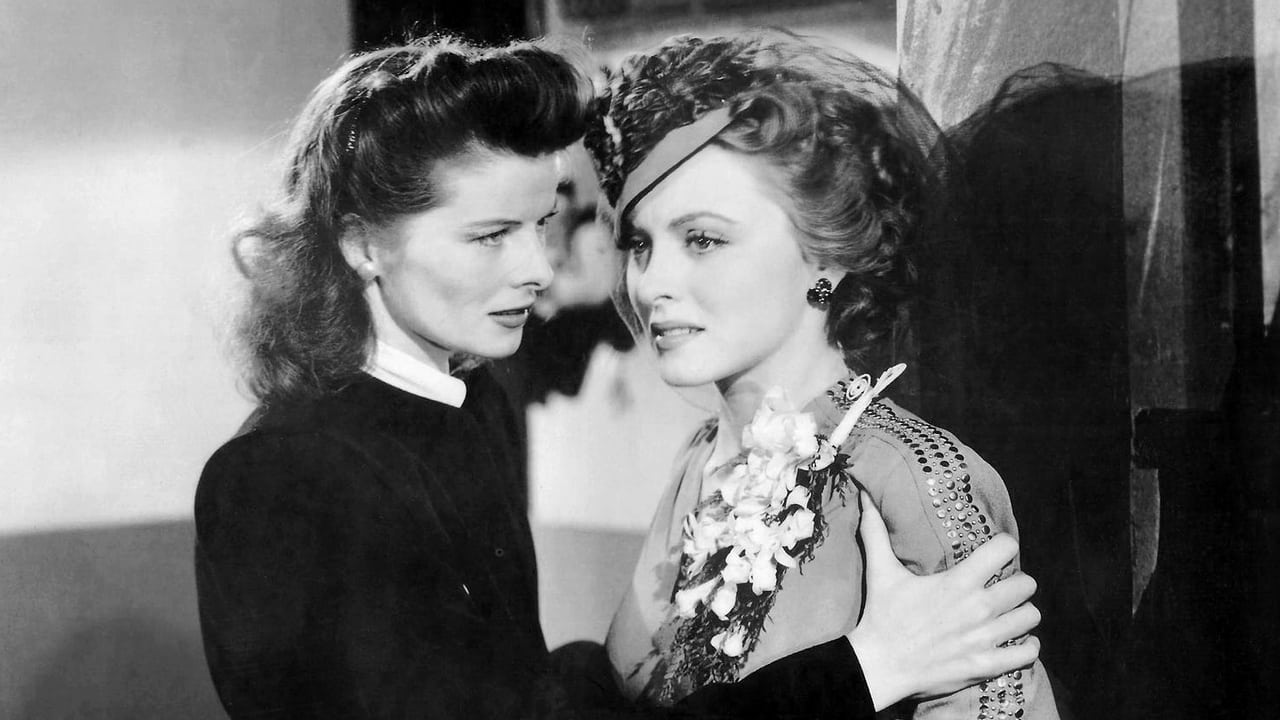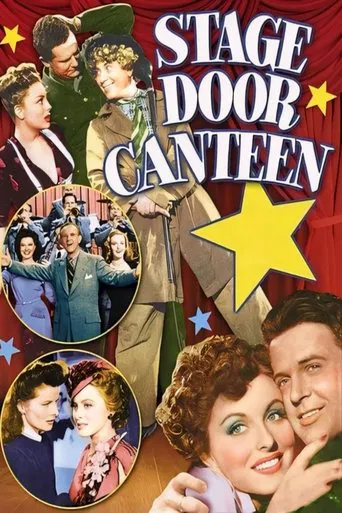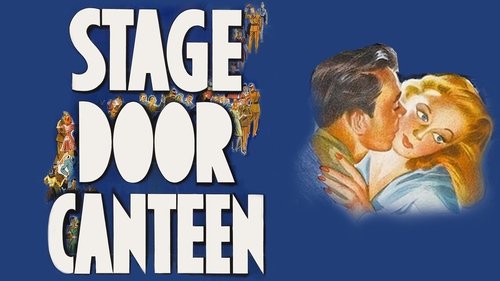


Very well executed
... View MoreIn other words,this film is a surreal ride.
... View MoreThe acting in this movie is really good.
... View MoreGreat movie. Not sure what people expected but I found it highly entertaining.
... View MoreAnother of the WW2 star rally movies where a bunch of movie stars get together in a single film to support the troops, each having minor parts and sometimes doing musical numbers or comedy skits. The main plot in these films usually features a romance involving one or two lesser known actors. Several of the studios did one of these during the war. The best, for my money, is Hollywood Canteen from Warner Bros. This one is one of the lesser efforts, but still enjoyable for classic film fans.Directed by Frank Borzage and released by United Artists, it tells the story of the title recreation center for servicemen in New York City and a romance between an aspiring actress (Cheryl Walker) and a soldier (William Terry). The bigger names giving support or doing cameos include Katharine Hepburn, Ethel Merman, Paul Muni, Merle Oberon, Johnny Weissmuller, Tallulah Bankhead, Ralph Bellamy, George Raft, Ray Bolger, Gypsy Rose Lee, Judith Anderson, Ed Wynn, Sam Jaffe, Franklin Pangborn, Alan Mowbray, and Edgar Bergen, among others. The stars vary in screen time and what they do. Some do bits, others just play themselves saying a line or two (usually a corny joke). The musical numbers are so-so and mostly feature popular bandleaders like Count Basie, Xavier Cougat, Kay Kyser, Benny Goodman and their respective bands. It's definitely worth a look for movie buffs but it goes on way too long for such a thin story and the music is nothing to get worked up over.
... View MoreThe main story is mile high corn about being swept away by emotion during wartime but the cast roll is amazing as are some of the performances. In particular Peggy Lee, saucy and sexy, Ethel Waters who's full of snap and Kay Kyser's band who swing the place. There are some personalities who don't perform but swoop in an add a touch of spice then saunter back out, Tallulah Bankhead being the best example. Some of the stars are a bit stiff but that's natural considering most of them where stars of the stage not screen. This does provide a document for some, Helen Menken for one, of their only on screen appearance for others, The Lunts, etc. a very rare one. The film offers a window into the diversity of popular entertainment during the war years-from jitterbugging to classical music. Some stars appearances are mere bits, Dame May Witty and Aline MacMahon. While others show some of their famed act that could never make it past the censors otherwise, Gypsy Rose Lee's performance is the best example of this. Then there are a few performers who became better known to the general public when they were older, Helen Hayes among them, who it is fascinating to see in their younger years. Mixed in with all the marvelous array of talent and entertainment are heavy doses of patriotic speeches which of course was the whole point of the film. Some are low-key and some like Merle Oberon's call to arms more heavy handed. The picture holds its big gun at least as far as star wattage goes, Kate Hepburn, until almost the conclusion of the film. She delivers a flag waving speech which even though it's a tad awkward she saves by the look she delivers at the end of it. At times a trifle graceless and ham-fisted this is still a very enjoyable movie with an utterly charming scene between Katharine Cornell and Lon McCallister where they perform an impromptu scene from Romeo and Juliet, the best of many highlights.
... View MoreI loved this film. I actually found it on youtube. Most of the reviews have concentrated on the fact that all those celebrities of the wartime era were seen. And it was indeed lovely to see them especially Katharine Hepburn who was lovely as ever. And the beautiful Merle Oberon.But for me the best part of the movie was the interaction of the soldiers and the girls. And I was especially enthralled by the performances of the little known actor William Terry as Dakota and actress Cheryl Walker as Eileen.This was obviously their one chance to shine in a big movie and I feel they did so magnificently. Indeed without them I don't think there would have been a film at all as you can't just have a movie filled with a bunch of cameo performances.I thought William Terry gave a lovely performance as the gentle Dakota. While Cheryl Walker I thought to be quite brilliant as the self centred Eileen who changes at the end. Indeed there were tears in my eyes at the conclusion. And it was definitely their performances that made the movie for me.
... View MoreYou'll never see films like Stage Door Canteen again. The all star support the troops film is a thing of the past. Try to make something like that today and see how many stars would be willing. This is an art form deader than the dinosaur.No reason it can't be enjoyed though. Skip the slight plot involving the servicemen who are patronizing the Stage Door Canteen who hook up with the hostesses there. Concentrate on the number of stars in the film, each doing some bit of business for themselves.Though a number of film stars are here, the film concentrates on stars of the Broadway stage. Katherine Cornell makes her one and only appearance in a film, in fact my favorite part of Stage Door Canteen is her impromptu reading from Romeo and Juliet with bashful GI Lon McCallister who played Romeo in high school. Alfred Lunt and Lynne Fontanne are here also. The Lunts later did some televised plays and we have some kinescope version of them. They eschewed the screen though, so even a bit of footage of them doing kitchen police at the Canteen we should be grateful for.The concert violinist Yehuda Menuhin is also here and it's nice the GIs took time to hear some serious music, a break from the swing bands of the era that are featured like Count Basie, Freddy Martin, Benny Goodman, and Kay Kyser. Director Frank Borzage was known for doing films of tender romances and the nominal leads William Terry and Cheryl Walker were little heard from again. Still they do their best to provide the note of poignancy for the serviceman enjoying time with the stars before going to war.Funniest unintentional moment occurs when Franklin Pangborn and Johnny Weissmuller are on the serving line. Pangborn who was very close to being an out gay actor at the time is looking admiringly at Tarzan and engages in a little banter with Weissmuller. Tarzan decides things are too hot in the kitchen and removes his shirt. I thought Pangborn was going to faint on the spot.I'm a sucker for these all star extravaganzas, I'll never give a bad review to one of them. Stage Door Canteen provides a glimpse of a bygone era, not likely to return.
... View More